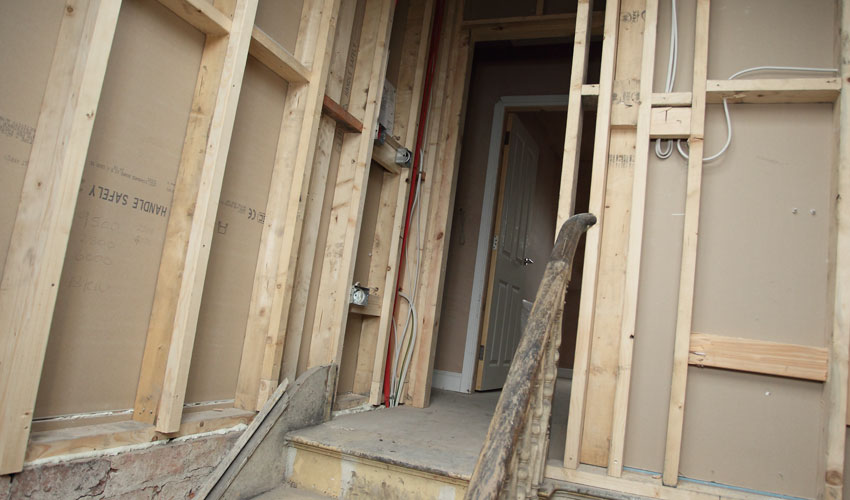
Navigating the complexities of property management requires a strategic blend of technology, risk management, and interpersonal communication. As the demands of managing commercial properties evolve, so must property managers’ strategies. Embracing sustainability and leveraging digital tools can enhance operational efficiency and tenant relations, leading to increased profitability and reduced environmental impact.
Effective property management today relies on a thoughtful approach to insurance, compliance, and tenant engagement, which addresses immediate needs and anticipates future challenges. Keep reading as we explore these key areas, offering insights and strategies to excel in managing commercial properties.
Understanding Commercial Landlord Insurance
For commercial landlords, selecting the right insurance policy is essential. It ensures coverage against various risks, such as property damage, legal liabilities, and potential loss of income due to business interruption. A robust commercial landlord insurance policy should adapt to the unique demands of managing commercial spaces, which often carry different risk profiles compared to residential properties.
Smart property management begins with understanding these risks and tailoring insurance policies accordingly. Managers should regularly assess their properties to identify specific structural, operational, or locational vulnerabilities and adjust their insurance coverage to mitigate these identified risks. Additionally, implementing safety technologies like fire alarms and security systems can significantly lower insurance premiums by reducing the likelihood of costly incidents. Effective management also involves regular updates to insurance policies, ensuring that coverage evolves in line with any new property developments or changes in tenant occupation.
Leveraging Technology For Efficiency
Efficiency in property management is greatly enhanced by integrating advanced technology solutions. Utilising property management software is one such strategy that facilitates smoother operations. These systems assist in automating routine tasks like rent collection, maintenance scheduling, and managing tenant communications—freeing up valuable time for property managers to focus on strategic decision-making.
Property managers should select software that offers a comprehensive suite of services tailored to their specific needs to maximise the benefits. Features such as automatic payment processing, digital contract management, and real-time maintenance request tracking can significantly streamline administrative tasks. Moreover, adopting Internet of Things (IoT) devices can elevate property management to new heights. Sensors that monitor everything from energy usage to security can provide actionable data, enabling predictive maintenance approaches that prevent major repairs and enhance tenant satisfaction through proactive service.
Enhancing Tenant Relationships With Smart Communication Tools
Establishing strong tenant relationships is pivotal for successful property management. Digital communication tools are instrumental in achieving this by providing platforms that enable seamless interactions between tenants and property managers. Employing these tools helps ensure tenants receive prompt responses to their queries and concerns, enhancing their overall satisfaction and loyalty.
Property managers should consider adopting platforms that facilitate real-time communication, such as instant messaging apps or integrated tenant portals. These platforms can offer functionalities like automated notifications for maintenance updates, rent reminders, and other important alerts, which help keep tenants informed and engaged. Additionally, enabling features for tenants to easily submit and track service requests online can significantly improve the efficiency of addressing issues, further boosting tenant satisfaction.
Lastly, soliciting feedback through digital surveys or feedback tools can provide valuable insights into tenant needs and preferences, guiding property managers in making informed improvements and decisions that enhance tenants’ living or working environment.
Sustainability Practices In Property Management
Adopting sustainable practices is not only beneficial for the environment but also serves as a strategic advantage in property management. Initiatives such as energy-efficient upgrades, smart waste management systems, and water conservation techniques can significantly reduce operational costs and attract tenants who value environmental responsibility.
Property managers should start by conducting energy audits to identify areas for improvement. Replacing outdated lighting, heating, and cooling systems with energy-efficient alternatives can save substantial costs.
Waste reduction is another crucial aspect of sustainable property management. Implementing recycling programs and providing tenants with clear guidelines and facilities for waste segregation can greatly enhance sustainability efforts. Additionally, installing water-efficient fixtures and adopting rainwater harvesting systems can decrease water usage and lower utility bills.
Risk Management And Compliance
Effective risk management and adherence to compliance are foundational to successful property management. These elements safeguard the property and its occupants and protect the management firm from legal issues. Property managers must ensure all properties meet local safety codes, building regulations, and environmental laws.
A proactive approach involves regular property inspections and audits to identify and rectify potential risks before they escalate. For instance, ensuring that fire safety systems are up-to-date and functional and that buildings comply with accessibility standards are critical measures. Additionally, maintaining a clear and accessible record of all compliance documents and repair histories can streamline the auditing process and demonstrate diligence in the event of an inspection.
The landscape of property management is evolving rapidly, influenced by technological advancements, growing environmental concerns, and changing tenant expectations. By prioritising these strategies, property managers can ensure the longevity and profitability of their assets and contribute positively to the broader community and environment, paving the way for a more sustainable and efficiently managed future in real estate.


